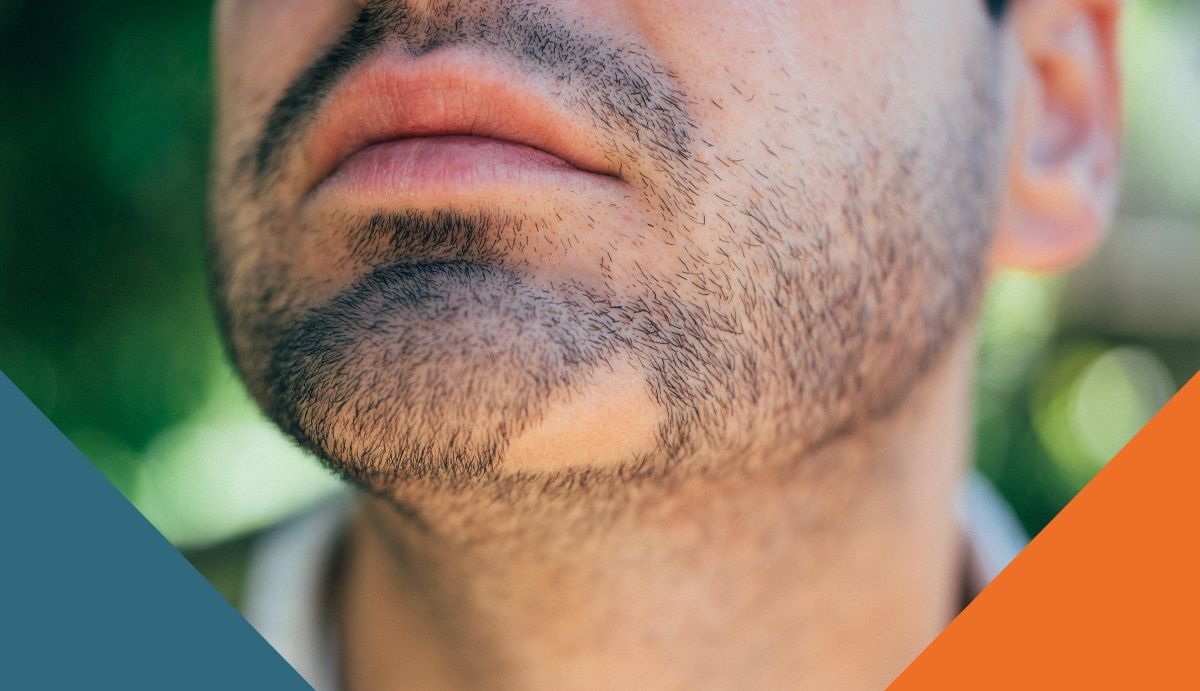Understanding Alopecia Areata – Causes, Impact and Treatments

If you’ve noticed patches of hair missing from your scalp or other parts of your body, you might be dealing with a condition called Alopecia Areata.
This autoimmune disorder causes your body’s immune system to mistakenly attack your hair follicles, leading to hair loss in small, round patches. It can be a daunting experience, but you’re not alone. I’m Pete, and I’ve had my own journey with hair loss.
Through understanding and the right approach, there’s a path forward to regrowth and resilience.
What is Alopecia Areata?
Alopecia Areata is an unpredictable autoimmune condition where the immune system mistakenly targets hair follicles, causing hair loss. It can affect anyone, regardless of age or gender, and typically leads to round patches of hair loss on the scalp. However, the condition can also impact other areas of the body, such as the eyebrows, eyelashes, and beard.
There are different forms of Alopecia Areata, each varying in severity:
- Patchy Alopecia Areata: The most common form, characterised by one or more coin-sized patches of hair loss.
- Alopecia Totalis: A more severe form involving complete loss of hair on the scalp.
- Alopecia Universalis: The most extensive form, resulting in complete loss of hair on the scalp and body.
The onset of Alopecia Areata is often sudden, with hair loss progressing rapidly. While some individuals experience regrowth, others may see hair fall out again, creating an unpredictable and emotionally challenging pattern.
Psychological Impact of Alopecia Areata
Losing hair can be an emotional experience, particularly when it affects visible areas like the scalp. I vividly remember the first time I noticed a bald patch—it felt as if the floor had been pulled out from under me. It’s entirely normal to feel a range of emotions when dealing with Alopecia Areata. From shock and confusion to frustration and sadness, these emotions are all valid.
For many, the psychological impact can be profound. Hair is often closely tied to our identity and self-image, so losing it can lead to feelings of insecurity, anxiety, or even depression. Recognising these feelings as part of the process is important. Speaking from personal experience, finding support, whether from friends, family, or a support group, can make a world of difference. Remember, you’re not alone, and many people understand what you’re going through.
Treatment Options for Alopecia Areata
The good news is that there are several effective treatments and management strategies available for Alopecia Areata. Treatment success varies from person to person, so it’s crucial to consult a healthcare professional to find the best approach for your specific situation.
Topical Treatments
Topical treatments such as corticosteroids help reduce inflammation in the hair follicles. Minoxidil, another commonly used treatment, is applied directly to the scalp to stimulate hair growth.
Oral Medications
In more severe cases, doctors may prescribe oral medications to suppress the immune system or reduce inflammation, helping to control hair loss.
Light Therapy (Phototherapy)
This involves using ultraviolet (UV) light on the affected areas and has shown to be beneficial for some individuals.
Alternative Therapies
Some people explore natural remedies, dietary changes, and supplements. While there’s no guarantee these will work, they can complement conventional treatments and may be worth considering.
It’s essential to have an open discussion with your doctor about the potential benefits and side effects of each treatment option. You can also explore the Optima Hair website for more information on available treatments and how they could benefit you.
Tips for Coping with Alopecia Areata
Living with Alopecia Areata isn’t just about managing the physical symptoms—it’s equally important to care for your emotional well-being. Here are some tips that might help:
Stay Connected
Building a support network is crucial. Whether it’s through friends, family, or an online community, connecting with others who understand your experience can provide comfort and solidarity.
Take Care of Your Body
Maintaining a balanced diet and regular exercise can support your overall well-being. Additionally, managing stress through mindfulness or relaxation techniques can have a positive impact on your condition.
Stay Informed
Knowledge is empowering. By educating yourself about Alopecia Areata, you can make informed decisions about treatment and coping strategies. Visit the Optima Hair website for more articles and resources on managing hair loss and exploring treatment options.
🤝 We’re Here for You!
Alopecia Areata may bring unexpected challenges, but it’s far from the end of your story. With the right information, support, and approach, you can manage your condition and explore paths to regrowth. Remember, every journey is unique, and discovering what works for you is key. At Optima Hair Specialists, we’re here to help you find the best way forward.
Feel free to explore our resources, or reach out for personalised advice or a consultation. Together, we can work towards a solution that helps you regain your confidence and feel like yourself again.
To connect with us, reach out via our contact form or call us at 0121 454 8180. You can also join our family on Facebook, Instagram, and TikTok to stay up-to-date on our latest news and promotions.
